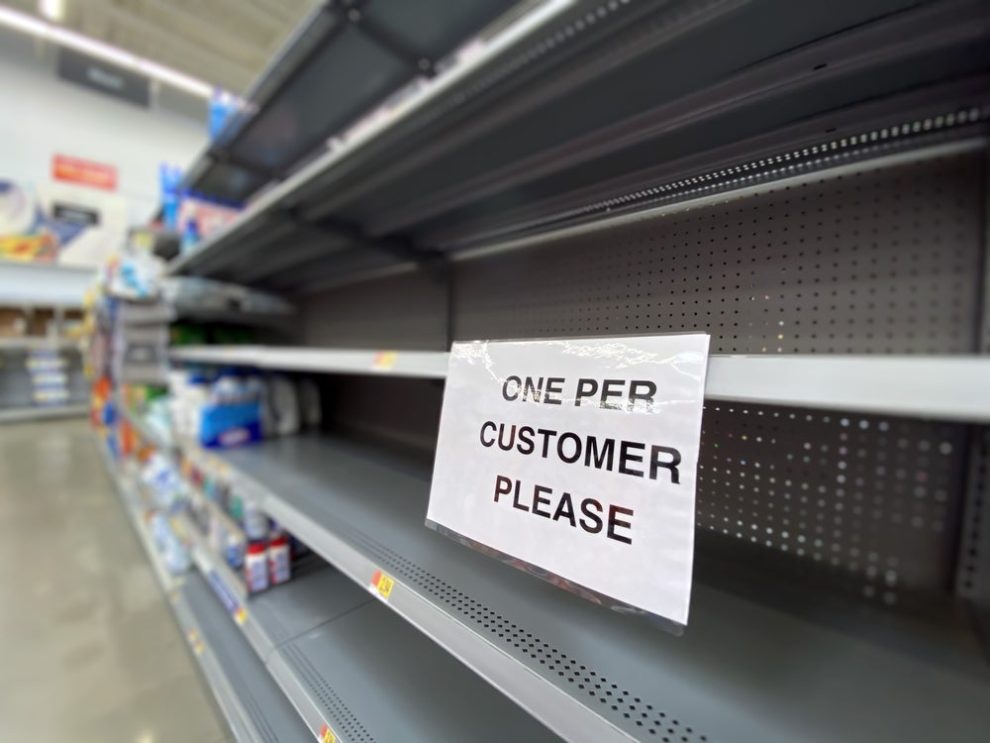Economists have been predicting that retailers in the U.S. are likely to face pressure in the case of higher tariffs on China, as it is likely to “empty shelves” with a falling inventory-to-sales ratio.
What Happened: According to Torsten Slok, the chief economist at Apollo Academy, the inventory-to-sales ratio for retailers has fallen below the pre-pandemic level, sparking concerns about lower inventory as compared to the sales made by these retailers.
“The inventory-to-sales ratio for retailers was 1.5 before the pandemic, and now it is 1.3, see chart below,” the Apollo note stated.
Slok explained, “In other words, retailers will more quickly have empty shelves when goods no longer come in from China.”
This sentiment was also echoed by senior economist Mohamed El Erian in an X post. According to him, the ongoing high-level talks between China and the U.S. in Geneva, Switzerland, are likely to provide clarity on many concerns.
He highlights China’s “appetite for pain” and America’s fear of “empty shelves” as the primary matters that need to be solved via the ongoing talks.
“The outcome of this weekend’s China-US tariff talks in Switzerland will be assessed in terms of what it reveals about China’s appetite for pain, America’s fear of ’empty shelves,’ and the way each country prioritizes the long-term objectives of trade policy. It will also be significant for many other countries, where there is already concern about the diversion of Chinese exports to their markets,” he said.
Why It Matters: Over the weekend, the White House and Chinese officials signaled significant headway in trade negotiations held in Geneva.
Treasury Secretary Scott Bessent lauded the “substantial progress,” while Trade Ambassador Jamieson Greer highlighted the swift agreement, expressing optimism that the deal would address the U.S.’s $1.2 trillion trade deficit, a “national emergency.”
China’s Vice Commerce Minister Li Chenggang also announced an “important consensus,” predicting “good news for the world,” according to Reuters. Both sides indicated that details of this progress would be released on Monday.
Price Action: The SPDR S&P 500 ETF Trust SPY and Invesco QQQ Trust ETF QQQ, which track the S&P 500 index and Nasdaq 100 index, respectively, fell on Friday. The SPY was down 0.13% to $564.34, while the QQQ declined 0.066% to $487.97, according to Benzinga Pro data.
On Monday, the futures of S&P 500, Dow Jones and Nasdaq 100 were trading higher ahead of the pre-open.
Read Next:
Photo: Orlowski Designs LLC/Shutterstock





Add Comment